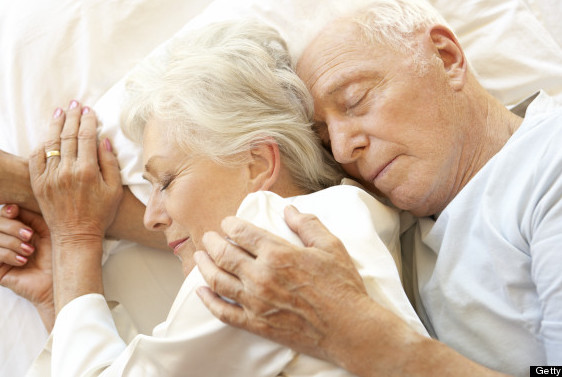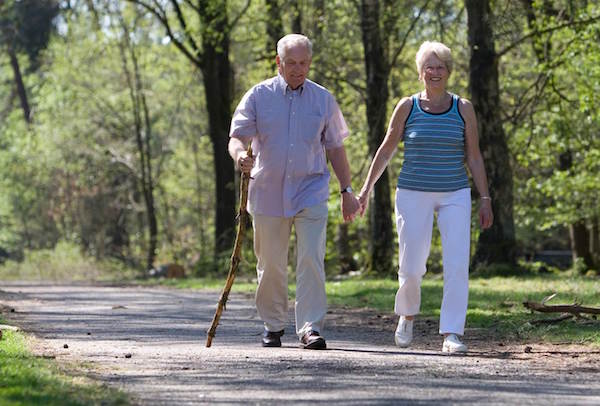As we get older, we begin to notice changes both physically and mentally. Some of these changes happen gradually, whereas others are more instant.
As we age, our sleeping habits begin to change, and you need to adapt to your new needs.
One clear thing is that there’s a strong correlation between ageing and the difficulty people experience when trying to get to sleep and stay asleep for more extended periods.
We’ll highlight the changes you can expect to experience, how these will impact you and the steps you can take to limit their effects.
Why Is Sleep Important When You Age?
Sleep is essential no matter what your age as this allows your body to repair any damage that has happened. As you get older, you’re more prone to contracting different illnesses and diseases, so sleep is essential to keep your immune system functioning efficiently.
Sleep problems often remain undiagnosed within the older generation because most believe that it’s just a part of life and nothing can be done, when in fact most conditions can be treated by identifying the underlying issues.

How much sleep do you need?
The amount of sleep you need will be person dependent, but the average adult will need between 7 and 9 hours of sleep per night. However, the most important thing is how you feel when you wake up in the morning.
If you wake up still feeling tired in the morning or you feel tired in the early afternoon, then you’re either not getting enough quality sleep, or there's an underlying issue that needs to be addressed.
How does sleep change as you age?
When you sleep your body releases growth hormone which is responsible for helping the body regenerate and repair while you sleep. When you age the amount of growth hormone that’s released decreases.
Growth hormone has its peak release during deep sleep so if less hormone is being produced it means that you’re experiencing less quality deep sleep.
This then has a knock on effect which leads to less Melatonin being produced which is often referred to as the sleep hormone and gives you the feeling of being tired at night.
This is the reason why older people will experience more fragmented sleep causing them to wake up in the middle of the night essentially turning them into lighter sleepers.
Why does sleep behaviour change?
Changing Sleep Patterns
As you enter senior age, there can often be a natural shift in your internal clock which means that you may need to go to sleep earlier and wake up earlier the following morning. If you don’t adapt to the new sleeping pattern, then you'll find that you wake up in the morning feeling less rested.
Changes in your sleeping pattern also mean changes to the duration of sleep. As you age, you may also see an increase in the time it takes to fall asleep which is also referred to as sleep latency.
REM sleep may also decrease due to increased sleep fragmentation where you wake up throughout the night.
Lack Of Social Engagement
Social interaction can fall as you age leading to greater isolation from people which is usually a result of retiring from full-time work, so you end up spending more time in the house which is made worse if you live alone.
Social activities and family can increase your activity and social interaction levels which will improve your sleep. If you’re currently retired, then there are alternatives such as joining a local social club or volunteering which will allow you to meet like-minded people.
Sleep Disorders
Suffering from sleep disorders are very common as we age and usually aren’t noticeable at first but develop in a more severe problem.
For example, according to NSF's 2003 Sleep in America poll, 44% of older persons experience a minimum of one symptom of insomnia several nights each week.
Other conditions such as Restless Legs Syndrome (RLS) sleep apnea or snoring occur more frequently among the older generation.
Medical Conditions
Sleep disorders aren’t the only conditions that can negatively affect your sleep. Medical conditions and pain can also lead to you struggling to get to sleep at night caused by a range of issues such as arthritis, asthma, diabetes or osteoporosis.
Although most of these conditions are caused by ageing, this doesn’t mean that you have to live with it. Consult your doctor as soon as you start to experience any symptoms because the earlier you have it diagnosed, the quicker it can be treated.
Stress
Just because you get older and the pace of life slows down, that doesn’t mean that you won’t suffer from stress. Stress can be caused by a whole range of things including the pressure of bills or moving home.
Stress plays a big part in the quality of sleep you get because the more you worry about the something, the harder it is to relax and fall asleep.
Poor Sleep Habits
Sleeping well is all about consistency and the environment that you’re sleeping in. Poor sleep habits include sleeping inconsistent hours, drinking alcohol before bed, not having a pre-bed routine or sleeping with the TV still on.
The more your bedroom is suited to falling asleep, the quicker you’ll fall asleep and the longer you’ll stay asleep without waking up.
Lack of Exercise
It’s common that as you get older, you may exercise less, but if you're too sedentary, then this can mean you find it harder to get to sleep. Exercise naturally will make you more tired and ready for bed.
Exercise doesn’t need to be strenuous and even a brisk walk for 30 minutes can increase your well-being and sleep quality.
A study carried out by Northwestern University revealed that aerobic exercise among over 55’s led to an improvement in sleep quality and sleep duration increased by as much as 1.25 hours per night.

Lack Of Sunlight
As we enter older age, we become more sedentary which usually means more time spent in the home without venturing outside. This can happen gradually, and before you know it, you’ve spent the last week indoors.
Melatonin is a natural hormone in our body that helps to regulate our sleep cycle and is the reason you feel tired at night.
Sunlight helps to regulate the release of Melatonin, so it’s essential that you get outside for at least two hours a day. If you can’t get out, then it's recommended to open the blinds to let the light shine into your home. Sunlight will also improve your overall wellbeing and happiness.
Medication
As we age, we tend to see an increase in the amount of medication we consume from day to day to treat a range of different issues.
Although these drugs may not cause any problems when taken individually, the combination of these drugs can trigger unwanted side effects such as impairing sleep.
However it may seem easy to say “just stop taking the medication”, it’s often not that simple because the side effects of not treating the initial issue could be significantly worse than lower quality sleep.
You should never accept that lack of sleep is a side effect of any medication because there’s a chance that your doctor may be able to change you to alternative medicine that doesn’t trigger that response.
How to remedy sleep problems?
Avoid Frequent Napping
While napping is often recommended as a great way to revitalise your body, it needs to be limited especially later in the day. Because your sleeping routine may mean that you need to go to bed earlier so any late naps will interfere with this and can make it harder for you to get to sleep at night.
Avoid Alcohol
Alcohol is often misunderstood and thought of as a way to get to sleep. It does make you feel drowsy making you fall asleep, but it decreases the quality of your sleep and affects your deep sleep which means you may wake in the morning feeling groggy.
Alcohol is also a natural diuretic meaning that you may have to keep getting up in the night to use the toilet.
Avoid Stimulants Close To Bed
Stimulants containing caffeine need to be avoided after early afternoon as they can give you unwanted alertness which can then interfere with your ability to get to sleep at night resulting in your getting less sleep.
Maintain a Sleep Schedule
Consistency is key to sleeping well. If you’re going to bed at a different time every night, then this will confuse your body making it harder to get to sleep. If you try to go to bed at roughly the same time, your body will begin to wind down and relax when you get to this time making it easier to fall asleep.
Boost Melatonin
Melatonin is released when your body thinks its time for bed, but this hormone production can be delayed and suppressed by artificial light so you won’t feel sleepy. To combat this, you need to dim your lighting and also reduce your use of electronic devices late at night especially when you’re in bed.
Create a Positive Sleep Environment
Ensure that your room or area you sleep in is quiet and dark because as we age, we get more sensitive to sound which can lead to more disturbances while external light can also cause sleep problems.
Luckily there is a range of sleep accessories that can help such as earplugs and sleeping mask.
Avoid Big Meals Before Bed
Eating a large meal before bed can make it uncomfortable to lie down which decreases the amount of sleep you get that night. If you do plan to have a big meal in the evening, ideally you should have it 2-3 hours before you aim to get some shuteye.
Don't Go To Bed Hungry
Although you shouldn’t have a large meal before bed, it’s almost just as bad to go to bed still hungry. At the time it may seem like the easier option but the sound of your belly grumbling into the night will limit the amount of sleep you get.
Even if you’re just about to head to bed, then a light snack will be sufficient and if it contains sleep-inducing mineral or vitamins such as Melatonin, B6, Calcium or Tryptophan then this will make it easier to get to sleep.
